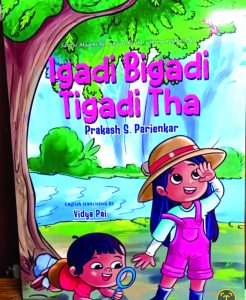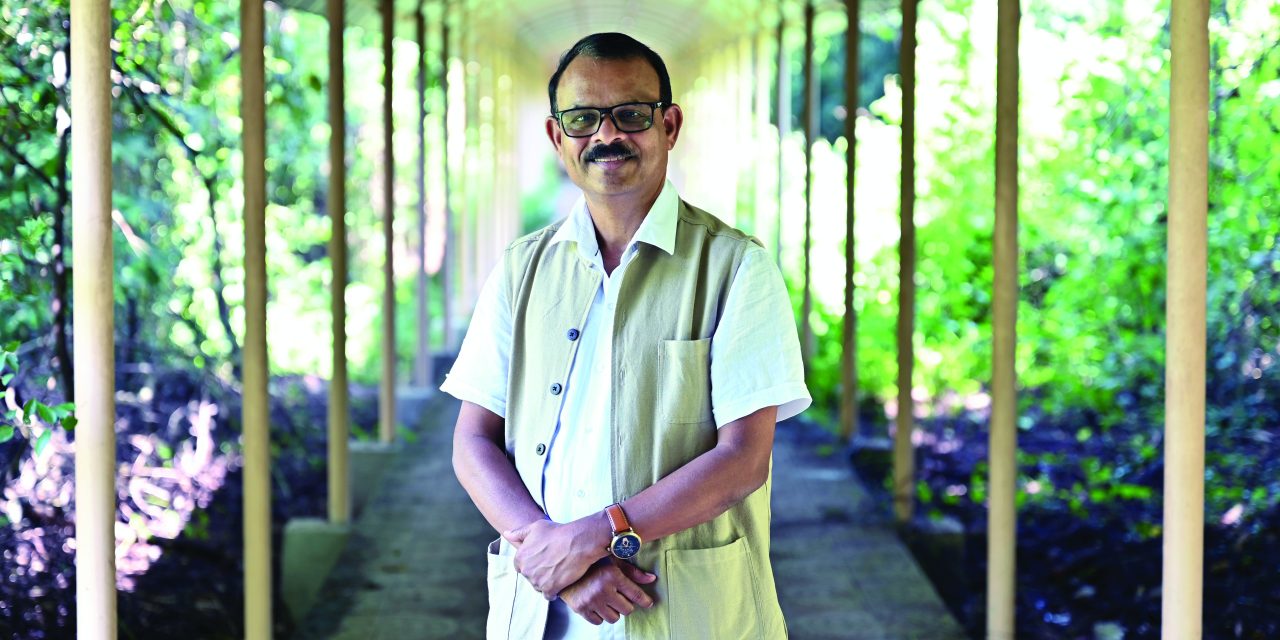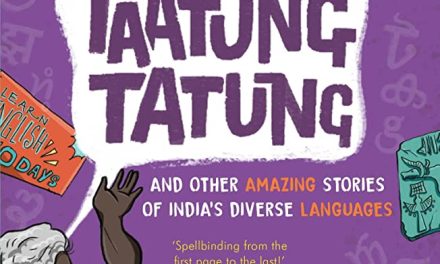In ‘Igadi Bigadi Tigadi Tha’, Prakash Parienkar explores folklore, environmental ideas and social themes with local and wider relevance
ADITHI SHARMA | NT KURIOCITY
Amid the forests of Goa’s Mhadei, Sahitya Akademi award-winning writer Prakash Parienkar found inspiration for his latest children’s book, ‘Igadi Bigadi Tigadi Tha’, which offers adventure, wonder, and lessons on courage and respect for nature.
Parienkar says the story grew out of his long association with the Mhadei landscape. “Since 1998, I have been organising trekking programmes in the Mhadei region,” he recalls. “I have spent over a hundred nights in the jungle, closely observing the forest. Big and tall trees have always fascinated me and these experiences helped me write this children’s play.” The work was originally created for the Konkani Balmanch 2023 scheme, initiated by the Goa Konkani Akademi.
‘Igadi Bigadi Tigadi Tha’ tells the story of a sinister wizard who turns the innocent characters Vithu, Chitra and several forest animals into stone, conveying to children that evil can and must be overcome. “It teaches young readers to confront injustice with courage and intelligence,” Parienkar adds, “and shows that nature should always be treated with care and respect.”
Writing for children presents unique challenges. “One must understand child psychology to build characters effectively. I truly enjoy this process.”
The book, translated into English by Vidya Pai, was released yesterday at Vidya Prabodhini College of Commerce, Porvorim, in collaboration with the Departments of English and Konkani. “For over two decades, she has been translating my short stories,” Parienkar says. “She engages in extensive discussions with fellow writers to ensure every concept retains its essence while staying true to the source language.”

‘Igadi Bigadi Tigadi Tha’ has also been translated into Hindi by the late Mohan Kulkarni and into Marathi by Indumati Dhongde. “My stories have appeared in Marathi, Hindi, Kashmiri, Kannada, Malayalam, English, and Portuguese,” he notes, “and the response from readers has been very encouraging.”
For Parienkar, Konkani culture and literature are inseparable. “Respecting your own culture is essential. A writer’s responsibility towards society and nature should come first,” he says, explaining how local elements naturally shape his storytelling.
Although this is his most recent work for children, Parienkar is equally passionate about fiction for adults. “I am more into storytelling for adults. Writing novels gives me more happiness.” His novel Puran, already translated into English by Pai, awaits publication.
He chose to write ‘Igadi Bigadi Tigadi Tha’ as a play because drama “is a powerful medium where we can portray live situations on stage.” He emphasises that ideas can travel across audiences: “The same theme may be used to write for children and adults.”
On preserving Konkani culture, he stresses the importance of safeguarding traditions. “All endangered rural culture needs to be preserved through literature, and the novel is the best option to portray it.” His forthcoming novel, Puran, explores the fading practice of silt-based organic farming in Goa, a theme he personally revived through fieldwork and documentation.
Reflecting on the larger literary landscape, he observes, “More and more good Konkani fiction is being translated into other Indian languages and English,” adding that greater translation and research into untold stories are important for the language’s growth.
To aspiring writers, he advises: “Search and research new themes, readers always welcome fresh, unique subjects.”
PICS BY HEMANT PARAB











